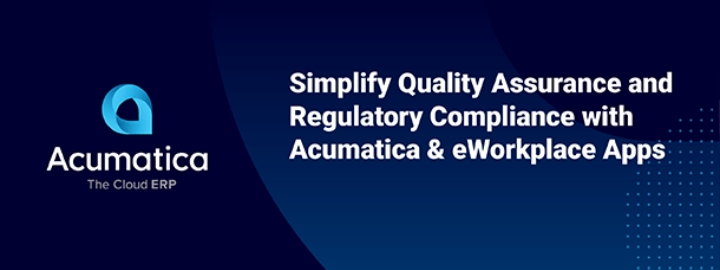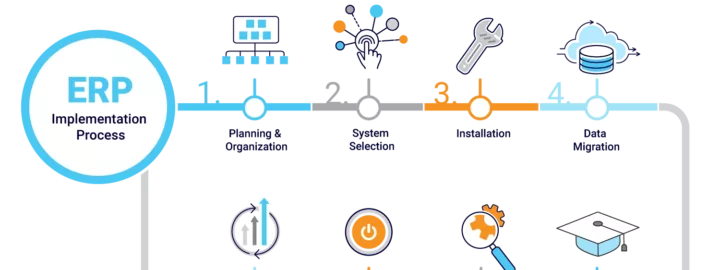
Companies planning an ERP implementation may be dreading the experience—and for good reason. They may have heard horror stories about prolonged, painful and ultimately unsuccessful implementations leading to company-wide frustration and unnecessary cost overruns due to those “inevitable” ERP implementation delays.
But the truth is, ERP implementation delays are avoidable, and it all starts with understanding what causes delays in the first place.
Understanding Why ERP Implementation Delays Happen
An ERP system implementation is often a complex, large-scale undertaking that requires time, focused effort, and ample resources. With this in mind, here are five major reasons why ERP implementation delays may arise.
1. Idealistic but Impractical Expectations
In a perfect world, an ERP implementation would be done in mere weeks, come in under budget, and be a huge hit with every employee. These are the unrealistic expectations many companies harbor before the real work begins, but the companies aren’t always to blame for setting these unattainable standards for themselves. Some ERP vendors overpromise and underdeliver. They guarantee improbable and inaccurate timelines that, when not met, end up costing everyone more time and money.
2. Misaligned Leadership and Teams
For any project a company undertakes, communication is key to success. Unfortunately, not every company understands how important it is to align its leadership team, managers, and potential users around the details before moving forward with an ERP implementation. Such lack of communication can result in conflicting expectations, especially when individuals bring differing backgrounds in software or platform adoptions to the table.
3. Slow and Wavering Decision-Making
Lengthy discussions and tentative decision-making are the death knell for a quick and successful ERP implementation. Reviewing pertinent data before making decisions and ensuring that tasks are being completed is important, but taking too much time to do so can slow down the implementation process while ratcheting up costs.
4. Overwhelmed Implementation Team
ERP implementation teams are necessarily made up of employees from different departments who fulfill specific roles for the ERP project: an executive sponsor, a project leader, a technical lead, and subject matter experts. Regardless of the roles they take on, team members must often perform their implementation tasks in addition to their normal, day-to-day responsibilities. This added stress can take a toll on them, negatively impacting their performance and contributing to further ERP implementation delays.
5. Understanding of Implementation Ownership
There is a misconception that the partner is fully responsible for the success of the implementation. Often customers believe they are selecting a partner who can implement the ERP system with minimal involvement from the customer. This causes short and long-term delays, increased costs, and often, failure.
How to Avoid ERP Implementation Delays
Ultimately, to avoid ERP implementation delays, you just need to employ a few commonsense measures.
- Manage expectations: The ERP vendor and/or ERP partner should give you a specific implementation plan that lays out the project’s phases, including how long each phase will be, what will happen during each step of the process, and how the ERP vendor and/or partner will address issues or delays. Make sure they give you this information upfront, so you will have clear expectations about the implementation timeline and costs.
- Give the details to your implementation team members and the entire organization: Keep everyone on the same page by letting them know what’s happening and when. They should know when the ERP implementation is slated to begin, how each phase is expected to go, what responsibilities each department and employee will have during the process, what time commitment is required, and when go-live is planned. They should also be advised of any changes or hiccups that take place during the ERP system implementation.
- Create an agile command team: The command team should consist of qualified executives who are able to make quick and decisive decisions, thereby keeping the ERP implementation on time and in budget.
- Reduce the workload for your implementation team members: Freeing implementation team members from their daily tasks will allow them to focus their attention and energies on their implementation duties. At the very least, work with them to help them find a happy balance between their regular and implementation-related work. Temporarily shift some (or all) of their daily tasks to other qualified employees, but make sure that everyone involved knows these shifts are temporary. In this way, you’ll be supporting your employees’ mental and physical wellbeing during the ERP transition and preventing overwork, which can lead to burnout and mistakes.
- Share the responsibility for implementation success: The customer and partner both have responsibility for the success of the implementation. The partner is responsible for understanding the customer requirements, then providing best practices and guidance. The customer is responsible for educating the partner on current business processes, reviewing all recommendations from the partner, and making the final decisions that ultimately provide business value.
And there’s one more thing that companies can do to avoid ERP implementation delays: choose the right ERP system and vendor. Companies disagree about what the “right” ERP software looks like, but there are some universal requirements for the “right” ERP vendor. Your ERP vendor must have a reputation for delivering successful ERP implementations and for establishing the strong, collaborative relationships that are so necessary for overcoming challenges during the ERP implementation journey.
How Acumatica Can Help
Acumatica paves the way for ERP system implementation success with the expertise of our partners. Acumatica’s partners are passionately committed to getting companies successfully established and up and running on our award-winning cloud ERP software. A great example of this is the story of CAL Business Solutions and Lifeway Mobility.
Lifeway Mobility sells healthcare mobility and accessibility products. The company opened its doors in 2015 and grew by acquisitioning mom-and-pop operational suppliers. However, each acquisition brought with it legacy and disconnected software, processes, and operating platforms.
Bryan Mullen, SVP of Shared Services at Lifeway Mobility, says all of their software packages complicated the company’s statements and reports. So, Lifeway Mobility started looking for a comprehensive, cloud-based business management solution that could bring its disparate systems and locations together.
After reviewing their ERP options, Acumatica’s unique pricing model, mobility, and scalability sealed the deal, and they chose to work with Acumatica partner CAL Business Solutions to get the implementation underway. According to Mullen, the process was a complete success: “Having run large operations, and as a CIO at a Fortune 50 company in the past, I’ve implemented a tremendous amount of technology over the years. None of them have been as smooth as Acumatica.”
Lifeway Mobility successfully got all six of its offices up and running on Acumatica, and two of those offices implemented the system during the pandemic. Though this meant all training, data migration, and post-launch support was done remotely for those locations, everything went off without a hitch.
Says Mullen, “Acumatica is enabling our growth through the implementation process. We are able to bring a new organization onboard, share with them our tools, and have them integrated within 30-to-60 days of closing a deal, which is phenomenal.”
The Lifeway Mobility team experienced no ERP implementation delays because of the expertise of CAL Business Solutions and because, together, they successfully applied Acumatica’s eight steps to the ERP implementation life cycle and seven stages to ERP implementation support.
Lifeway Mobility chose a traditional implementation life cycle, but Acumatica also offers a FastTrack Deployment option for its General Business, Distribution, and Construction Editions. Leveraging a robust, scalable, and repeatable framework, Acumatica’s FastTrack Deployment launches companies onto its cloud ERP system within 90 days or less. If you want to personalize the software (such as integrating it with critical third-party applications), you can do so after the initial implementation is complete and you’ve had time to experience the system in your business’s day-to-day environment.
Generation Cable opted for FastTrack Deployment, and President Dana Dabruzzi had this to say about it: “As one of the first companies to engage in Acumatica’s FastTrack platform, we’ve been pleased with the amount of detail and attention paid to our successful launch into the system.”
Whether they’ve chosen FastTrack or traditional, thousands of Acumatica customers have enjoyed seamless, delay-free ERP system implementations, and we look forward to providing the same experience for you.
For further information, contact our team with any questions and/or to schedule a demonstration.












